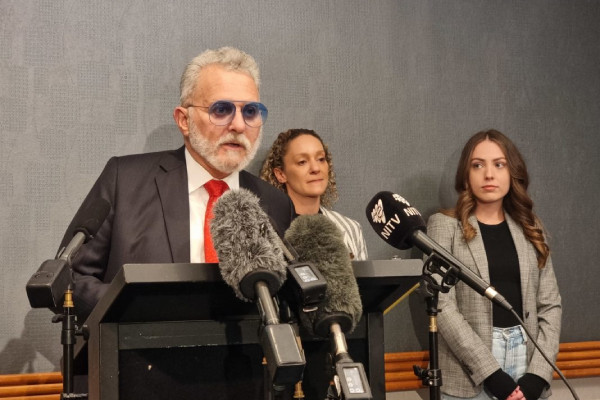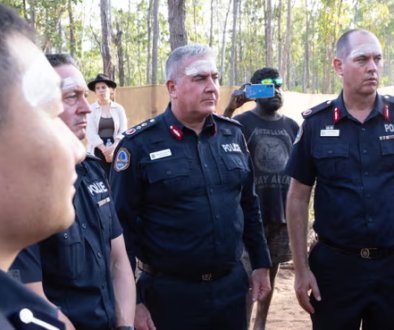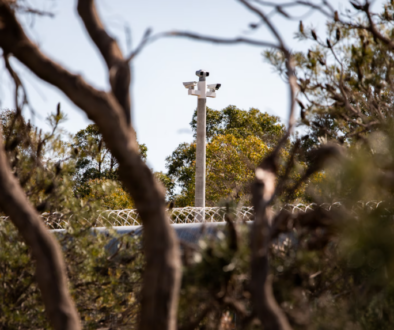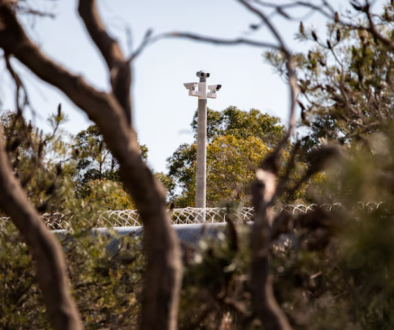
Banksia Hill class action begins in Federal Court
A class action against the state of Western Australia involving hundreds of current and former Banksia Hill Detention Centre detainees commenced in the federal court Wednesday morning, alleging abuses and human rights violations.
Stewart Levitt, who is leading the case for law firm Levitt Robinson, told National Indigenous Times that the WA government had given the claimants no choice but to pursue legal action.
“The Western Australian government has doubled down on its behaviour towards juvenile detainees in the face of public pressure and a human rights campaign rather than making amends or doing something constructive in keeping with liberal democratic values. We had no alternative but to commence proceedings,” he said.
“Unfortunately, the Western Australian government thinks it is a Republican government rather than a Labor government, and use the same tactics with respect to human rights issues as Donald Trump’s supporters.”
Mr Levitt said the testimonies allege physical abuse, restriction, restraint, breaches of the Disability Discrimination Act and inhumane treatment.
Megan Krakouer, who with Gerry Georgatos worked to collect hundreds of testimonies for the action, said nothing had changed in Banksia Hill since it opened in 1997.
“The atrocities and human rights abuse continue,” she said.
“The class action… will highlight the failures and shine the light on the punitive treatment that children are being subject to.”
Mr Levitt said successive WA governments have “a lot of blood” on their hands because of self-harm incidents and suicides, including by former Banksia Hill detainees, over the past 25 years in the prison system.
“The class action looks back to 1997 with the closure of Rangeview and the establishment of Banksia Hill as the sole juvenile detention facility in WA,” he said.
He noted that Aboriginal children are radically overrepresented in juvenile detention in WA.
“Indigenous kids are 45 times more likely to be incarcerated. The percentage of kids in there with psychological and emotional disability is gigantic, it’s the overwhelming majority,” he said.
“In addition to that you are looking at a situation where Indigenous people are the most incarcerated people in the world.”
Mr Levitt said the failure of the system went beyond corrective services.
“It is all very well for Mark McGowan to stigmatise these kids and by extension their families but a very considerable number of them are wards of the state. Their parents are effectively the department of child protection and what a shocking job they have done in caring for these kids,” he said.
He noted that the principles enshrined in the Young Offenders Act 1994 include the paramountcy of rehabilitation in response to offending by children.
A WA government spokesperson said “it is inappropriate to comment as the matter is before the court”.
The government recently announced a funding boost for upgrading infrastructure and services at Banksia Hill.

Banksia Hill class action begins in Federal Court
A class action against the state of Western Australia involving hundreds of current and former Banksia Hill Detention Centre detainees commenced in the federal court Wednesday morning, alleging abuses and human rights violations.
Stewart Levitt, who is leading the case for law firm Levitt Robinson, told National Indigenous Times that the WA government had given the claimants no choice but to pursue legal action.
“The Western Australian government has doubled down on its behaviour towards juvenile detainees in the face of public pressure and a human rights campaign rather than making amends or doing something constructive in keeping with liberal democratic values. We had no alternative but to commence proceedings,” he said.
“Unfortunately, the Western Australian government thinks it is a Republican government rather than a Labor government, and use the same tactics with respect to human rights issues as Donald Trump’s supporters.”
Mr Levitt said the testimonies allege physical abuse, restriction, restraint, breaches of the Disability Discrimination Act and inhumane treatment.
Megan Krakouer, who with Gerry Georgatos worked to collect hundreds of testimonies for the action, said nothing had changed in Banksia Hill since it opened in 1997.
“The atrocities and human rights abuse continue,” she said.
“The class action… will highlight the failures and shine the light on the punitive treatment that children are being subject to.”
Mr Levitt said successive WA governments have “a lot of blood” on their hands because of self-harm incidents and suicides, including by former Banksia Hill detainees, over the past 25 years in the prison system.
“The class action looks back to 1997 with the closure of Rangeview and the establishment of Banksia Hill as the sole juvenile detention facility in WA,” he said.
He noted that Aboriginal children are radically overrepresented in juvenile detention in WA.
“Indigenous kids are 45 times more likely to be incarcerated. The percentage of kids in there with psychological and emotional disability is gigantic, it’s the overwhelming majority,” he said.
“In addition to that you are looking at a situation where Indigenous people are the most incarcerated people in the world.”
Mr Levitt said the failure of the system went beyond corrective services.
“It is all very well for Mark McGowan to stigmatise these kids and by extension their families but a very considerable number of them are wards of the state. Their parents are effectively the department of child protection and what a shocking job they have done in caring for these kids,” he said.
He noted that the principles enshrined in the Young Offenders Act 1994 include the paramountcy of rehabilitation in response to offending by children.
A WA government spokesperson said “it is inappropriate to comment as the matter is before the court”.
The government recently announced a funding boost for upgrading infrastructure and services at Banksia Hill.



